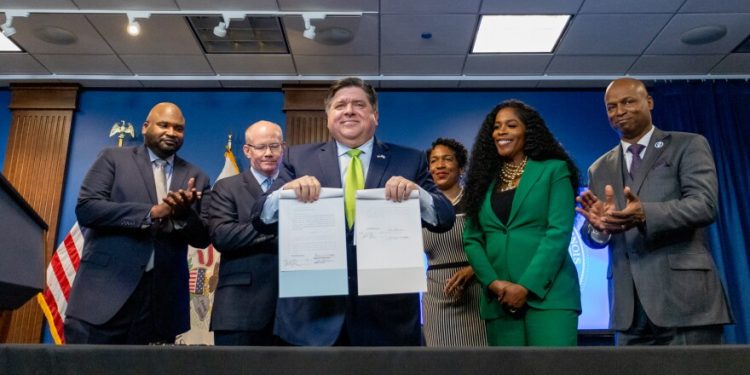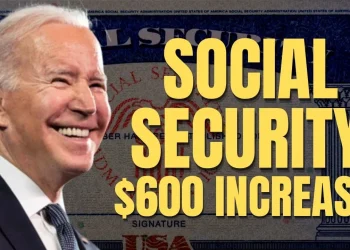Governor J.B. Pritzker has given the green light to Illinois’ $53.1 billion state budget for the upcoming fiscal year, marking an increase in spending by 1.6% from the previous year. This new budget continues the trend of higher spending seen since 2019, as reported by the Washington Examiner.
Key Features of the New Budget
This Article Includes
- 1 Key Features of the New Budget
- 2 Related posts
- 3 Retired Baby Boomer Calls for Social Security as a Fundamental Right in the US Amid Financial Struggles
- 4 463,000 Calls Later: Social Security Administration Issues Stern Warning Over False Payment Increase and Stimulus Check Claims
- 5 Adjustments in Industry-Specific Taxes
- 6 Debate Over Business Loss Caps and Online Retail Taxes
- 7 Strategic Fiscal Management
The approved budget introduces approximately $1.2 billion in new taxes, primarily targeting specific industries rather than imposing additional burdens on regular taxpayers. Democratic supporters of the budget argue that it is both balanced and responsible. They highlight significant tax relief measures, such as increasing the personal exemption for income tax and phasing out the sales tax on groceries by 2026.
Adjustments in Industry-Specific Taxes
A notable aspect of the budget is the adjustment of taxes on sports betting and video gambling. These changes aim to reduce the fiscal deficit while promoting fairness within these industries. Governor Pritzker has defended these tax modifications against industry criticism, asserting that Illinois remains competitive compared to other states.
Debate Over Business Loss Caps and Online Retail Taxes
The budget introduces new rules for businesses, including a $500,000 cap on deductible operating losses annually. This has sparked a heated debate among business owners regarding its potential impact on business growth. Additionally, changes affecting the online retail and hospitality sectors will increase tax obligations on remote sales and leasing activities, contributing to the state’s revenue boost.
Strategic Fiscal Management
Governor Pritzker’s budget reflects strategic fiscal management, balancing the complexities of economic policy with the Democratic values of fairness and sustainability. As Illinois prepares to implement these changes in July 2024, the impact on economic growth and social equity will be closely monitored.
Overall, Governor Pritzker’s approval of the $53.1 billion budget represents a commitment to maintaining fiscal responsibility while addressing the needs of the state through targeted tax measures and strategic spending increases.












